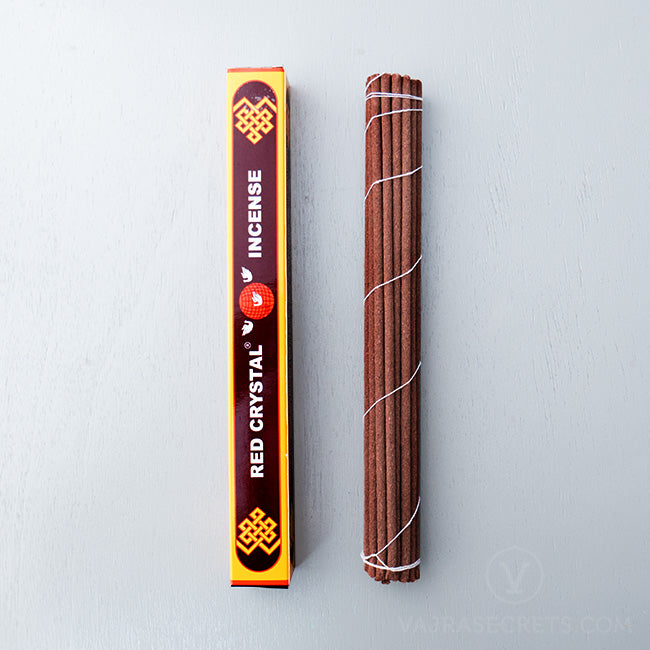About Agarwood
Agarwood (also known as aloeswood, 'Chen-Xiang' 沉香 in Chinese or 'Oud' in the Middle East) is a traditional incense ingredient which has been used in religious and cultural ceremonies for millennia. Often called the "Wood of God", it is one of the most expensive woods in the world.
The aromatic scent of premium agarwood is sweet, spicy, deep and balanced. It counters stress, aids relaxation, and creates an ethereal and stimulating ambience that promotes mental alertness and supports meditation. It can also help children improve their focus and study better.
In the Tibetan medical tradition, calming agarwood has many medicinal purposes including treating 'wind' (rlung) disorders and insomnia.
About Incense and Incense Offering
Across all Buddhist traditions, incense is one of the most common and basic substances used as offerings to the Buddhas and enlightened beings. Within Tibetan Buddhism, incense is typically used as an offering to the Three Jewels — Buddha, Dharma and Sangha. It is also employed as part of Buddhist ritual to purify offering substances such as water, food and light.
In traditional Tibetan Medicine, incense is often used as a medicinal substance to treat certain ailments. Due to the healing qualities of its ingredients, Tibetan incense can soothe and calm a mind affected by depression, restlessness, anxiety and stress. Specific incense formulas can also be beneficial for common complaints such as migraines, cough, dizziness and insomnia.
On a spiritual level, the offering of incense reminds us to hold our vows purely and creates the causes for us to do so. In Buddhist thought, morality is considered to be one of the Six Perfections of a Bodhisattva practitioner. As such, it is one of the keys to reaching full enlightenment.
“Incense offerings should be done daily and consistently with great confidence in the supreme Dharma that liberates our mind from all sufferings and to the holy sage Buddha who has traversed over samsara.”
– Tsem Rinpoche
As we make incense offerings to the Buddhas, we generate the merits to become like them and hold our vows perfectly. This collection of merits is based on our Bodhisattva aspirations, and will lead us to the realisation of higher views which sees the faults of serving oneself as opposed to serving the needs of all sentient beings.
Therefore, offering incense of the best quality with the highest motivation may seem to be a simple spiritual act, but it leads to higher insight, integrity of practice, consistency of practice, generation of merits, and the ability to hold our vows which leads to the generation of higher attainments and insight within our mindstream.




















